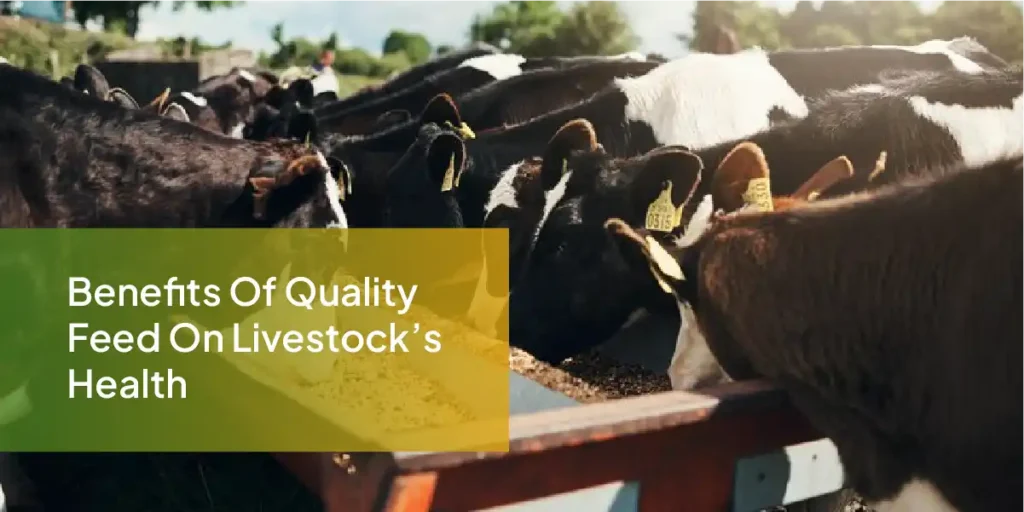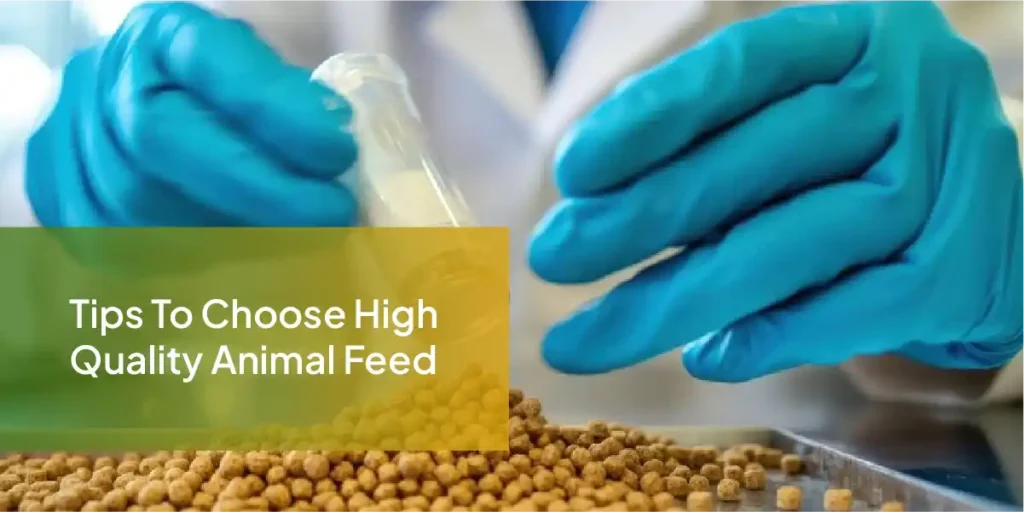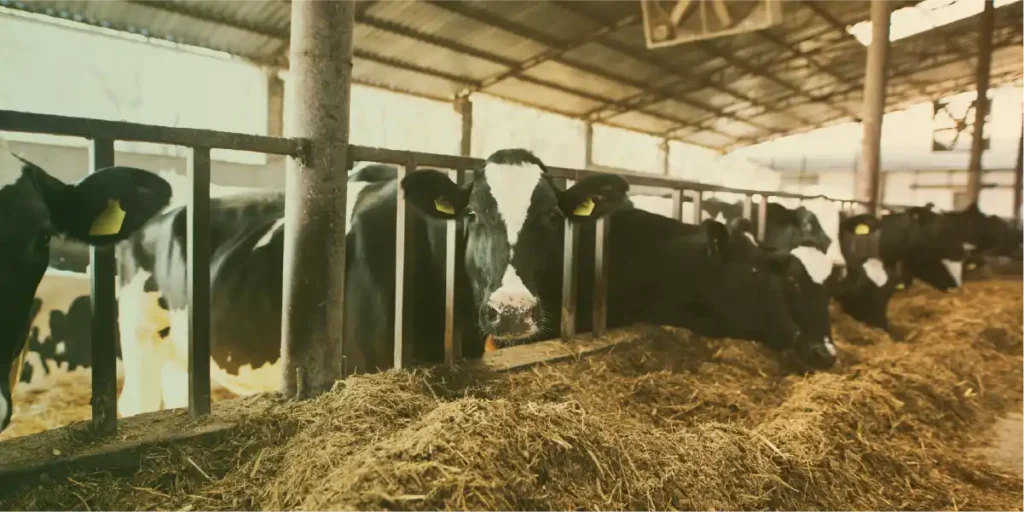In the world of animal farming, quality feed is more than just an input—it’s a critical factor that determines the success of the entire operation. Livestock, whether raised for meat, milk, eggs, or wool, require the right nutrition to thrive. Poor feed quality can lead to stunted growth, reduced reproduction rates, and lower immunity, affecting the animals’ productivity and the farmer’s bottom line
This blog explores why investing in high-quality animal feed is essential for healthier livestock, sustainable farming practices, and better-quality products.
What is Quality Animal Feed?
Quality animal feed is feed that provides balanced nutrition, is easy to digest, is free of harmful substances, and encourages consistent intake. Let’s dive deeper into what makes feed “quality”:
1. Balanced Nutrient Composition
Animals, like humans, require a mix of nutrients for optimal health and productivity. These include:
- Proteins: For muscle development and tissue repair.
- Carbohydrates and Fats: For energy.
- Vitamins and Minerals: For immune health, bone development, and overall well-being.
A lack of these nutrients can lead to health issues like poor growth, low milk yield, and reduced fertility. High-quality feed ensures animals get the precise nutrients they need at every stage of their lives.
2. High Digestibility
For animals to benefit from the nutrients in their feed, it must be easy to digest. Poor-quality feed often contains fillers or indigestible components that reduce nutrient absorption. This can lead to wasted feed, digestive problems, and reduced performance.
3. Appealing Taste (Palatability)
Animals are more likely to eat feed that they find tasty. Palatable feed improves consumption rates, which is crucial for optimal growth and milk production. Poor-tasting feed, even if nutritious, can result in lower intake and slower growth.
4. Free from Harmful Contaminants
Feed contaminated with pesticides, mycotoxins, or heavy metals can harm livestock. These contaminants can cause severe health issues, including organ damage, low fertility, and even death in severe cases. Farmers must prioritize feed that is clean and thoroughly tested.
The Impact of Quality Feed on Livestock Health and Productivity

Investing in premium feed provides significant benefits across several areas:
1. Enhanced Growth and Development
High-quality feed is especially important for young animals, as their growth stages require rich and balanced nutrients. Proper nutrition supports faster weight gain, healthy skeletal development, and earlier maturity, reducing the time to market or production.
2. Improved Reproductive Success
Well-fed animals are more likely to have successful pregnancies, healthier offspring, and improved fertility rates. For dairy animals, quality feed directly impacts milk production, both in terms of quantity and nutritional value.
3. Stronger Disease Resistance
Nutrition plays a critical role in building and maintaining a strong immune system. Balanced feed helps animals combat infections and recover quickly from illnesses. This is particularly vital in crowded farming conditions, where diseases can spread rapidly.
4. Higher-Quality Products
The diet of livestock directly affects the quality of the products they provide. Animals fed with premium feed produce better-quality meat, milk, and eggs. For instance, omega-3-enriched feed can enhance the nutritional value of animal products, making them more appealing to health-conscious consumers.
5. Reduced Environmental Footprint
High-quality feed often uses sustainable ingredients and production methods. Feed that is locally sourced reduces transportation emissions, while nutrient-dense formulations minimize waste, leading to lower greenhouse gas emissions.
Additional Benefits of High-Quality Animal Feed
1. Financial Savings in the Long Run
While premium feed may seem costly upfront, it can save money over time. Healthier animals require fewer veterinary interventions, grow faster, and produce more, leading to better returns on investment.
2. Compliance with Food Safety Standards
Using quality feed ensures that the resulting animal products meet regulatory standards for safety and nutrition. This is essential for farmers selling to health-conscious markets or exporting goods.
3. Supporting Sustainable Agriculture
By choosing environmentally friendly feed options, farmers contribute to sustainable agricultural practices. This includes using organic ingredients, reducing chemical inputs, and minimizing the ecological footprint of their operations.
How to Choose High-Quality Animal Feed

Not all feed is created equal. Here are some tips for making the best choice for your livestock:
Work with an Animal Nutritionist
Nutritionists can create a diet plan tailored to your animals’ specific needs, considering factors like age, species, and production goals.
Source from Reputable Suppliers
Always buy from trusted brands known for quality control and premium ingredients. Check for certifications and customer reviews to ensure reliability.
Inspect the Feed
Look for signs of spoilage, such as mold, unusual smells, or discoloration. Contaminated feed can harm your animals.
Understand Feed Labels
Learn to read and understand feed labels. Pay attention to the protein, fat, and fiber content, as well as any added vitamins and minerals.
Store Properly
Protect feed from moisture, heat, and pests by storing it in a cool, dry, and secure place. Improper storage can lead to spoilage and nutrient loss.
Conclusion
Quality animal feed is the cornerstone of healthy, productive livestock and a thriving farming operation. It ensures animals receive the nutrients they need for optimal growth, reproduction, and immunity. While also improving the quality of products like meat, milk, and eggs. For farmers, this means better yields, reduced veterinary costs, and increased profits.
Beyond the farm, high-quality feed contributes to sustainable agriculture by reducing waste and supporting eco-friendly practices. It also builds trust with consumers by delivering safer and more nutritious animal products.
By choosing high-quality feed, farmers invest not only in their livestock’s health but also in their business’s future. Healthy animals lead to stronger productivity, better market opportunities, and a lasting positive impact on the environment and society. Feed them right to watch them thrive!
Looking for a trusted supplier?
Contact us today for high-quality animal feed!


